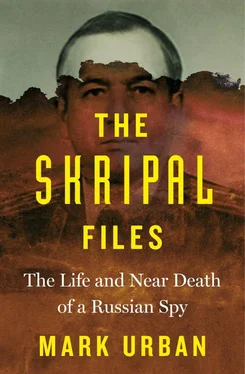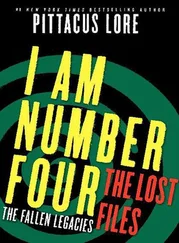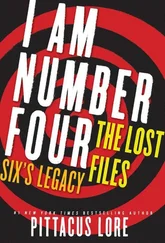For Skripal though the last phase of his period at the academy led to a piece of frustration typical in the world of the Soviet intelligence officer. Having completed his training in the arts of espionage, Skripal was informed that he would begin preparations to be posted to Mozambique. Assignments in the developing world were common for officers on their first overseas tour. They weren’t as glamorous as some of the prestigious Western stations, but they also tended to lack proper counter-espionage services, and the money available for agent recruitment stretched further.
In preparation for this job, Skripal spent many months studying Portuguese, and reading about Mozambique. Then he was informed that someone else would go instead, his service had other plans for him. Eventually it became clear that his first foreign assignment, under diplomatic cover, would be in Malta.
After a further period of training for life as part of the small diplomatic corps on that Mediterranean island, including lessons in English, he arrived there in 1984 not long before Mikhail Gorbachev assumed the leadership of the Communist Party back home. Skripal would remain there for over five years, an unusually long posting that testified to the Centre’s satisfaction with his work.
Skripal’s cover at the embassy was as an attaché for sport and culture. That legend meant devoting a good many hours each week to the legitimate work of furthering good relations with the people of Malta.
In the newspapers of the time Skripal makes a number of appearances: arranging the water-polo coaching for a Maltese squad, setting up matches for a Russian football team, and even fostering exchanges between eye surgeons. He’s pictured in some of the articles wearing a tan-coloured suit, looking sharp and attentive at meetings with the island’s sporting and political figures. It was the one kind of publicity a spy loves; the type that helped build his legend, disguising his real mission in Malta.
As far as the small Malta GRU rezidentura was concerned, the place was an important strategic point in the Great Game for the Mediterranean. The island’s neutrality in the East– West stand off also made it a relatively benign arena for espionage. He knew that in order to make his mark, becoming a success in his first foreign post, it was essential for him to make recruitments. So Skripal trawled for agents in the island’s ‘ruling circles’ and tried to spot Western diplomats, military people, or spooks and pitch them into the bargain.
One target in particular came to interest the GRU station in Malta: an unusual category of tourist. The Russians had realized that many members of the US military based in southern Italy came over for breaks on the island. In the mid-1980s, Tomahawk cruise missiles had arrived at Comiso airfield on Sicily, the air station of Sigonella was one of NATO’s busiest anti-submarine bases, and the US Mediterranean Fleet had its headquarters at Gaeta near Naples.
It was nigh on impossible to recruit Americans near those bases, particularly the Sicilian ones. There was no handy GRU station nearby, and the US Navy as well as the Italians themselves had significant counter-intelligence services watching out for precisely such activity. In a Maltese bar though the opportunities were altogether better. Skripal therefore spent many an evening trying to befriend sailors and airmen, buying them drinks and posing as a regular guy.
It was at this point though that Skripal started to entertain dissident thoughts – at least in the sense of ideas that undermined the ideological conditioning given to him during his first seventeen or eighteen years of serving the USSR. Even before the GRU academy he had been taught to think of himself as a fighter against Western imperialism. He must be ready – and had shown himself so in Afghanistan – not just to hazard his own life but to take those of others in the great struggle that his nation found itself involved in. Arriving on that small island in the West after all those years of preparation, he decided, ‘it was a wonderful place, everyone was so close. The diplomatic community was small but very friendly’.
In Afghanistan just a few years before, he had taken part in murders of people – just on the suspicion they were working for the CIA. In Malta, he found himself chatting face to face with members of the agency, and for that matter MI6 or young American sailors, and found them to be perfectly charming and friendly. They were human. They too had little kids they were bringing up. Why hate them?
This was not a dramatic conversion of course, rather it was in the Maltese playground that a seed of doubt was planted. And, a little uncomfortably, he had become aware of it.
The Soviet diplomatic corps was so small that the departure of a GRU officer usually made it very easy to spot the arrival of the next, whatever his or her cover. And for their part the Russians knew who the small number of Western intelligence officers were. When the identity of the few players, and rules of the game, were so well understood, the chances of a major recruitment were minimal.
A CIA officer writing about the absurdity of the Cold War spy game in a (different) small Mediterranean posting noted:
The officials in those consulates that you could get to come to your home or out to lunch or dinner – the usual opening gambit in your effort to develop and recruit them – were almost invariably undercover intelligence officers themselves. They had agreed to see you because they saw your invitation as the beginning of their effort to recruit you. In short they were trying to do the same thing to you that you were trying to do to them.
And this question of who was really cultivating whom could be enormously stressful for a GRU officer. It was a mind-bending battle of spy versus spy. After all, if some CIA officer reported back to Langley – truthfully or not – that he was making great progress in cultivating a GRU man in Malta, that might be picked up by a Soviet agent working in one of the US agencies and find its way back to Moscow. The result might then be, well, truly awful. In an unacknowledged way the players in Malta’s small-town espionage game knew these risks weren’t worth it. Rather than engage in futile attempts to recruit spies from major Western agencies, Skripal focused on locals, as well as the visiting US service members, enjoyed a sunshine posting and savoured family life. His daughter, Yulia, had been born shortly before, Sasha was then eleven, and a small island meant nights away from home were a rarity.
There were Sundays at the beach and happy hours exploring the island with its baroque architecture and spectacular scenery. Fresh seafood was abundant along with traditional Maltese delicacies like fish pie and rabbit stew. Add to that the Western food and barbecues at diplomatic functions and it was a lifestyle all very far removed from the ups and downs of garrison life in the airborne forces.
Late in 1989 it was to the island of Malta that Mikhail Gorbachev and George H. W. Bush, the American president, came for a symbolically important summit. Winding up the two-day, rain-soaked event without agreement on specific new steps to ease tension between the rival blocs, the Russian leader went for something symbolic. ‘We searched for the answer to the question of where do we stand now’, said Gorbachev at the press conference, ‘we stated, both of us, the world leaves one epoch, of Cold War, and enters another epoch.’ That gave the newspaper correspondents their headline – Malta became the place where the Cold War was declared over.
Before the decade ended so did the Maltese chapter in the Skripals’ life. They returned to Moscow and their flat in Krilatskoye. Like many coming back from a foreign posting they were laden with Western electronic goods, fancy clothes, and happy memories. But Sergei went back to a desk job at headquarters, and one of the more remarkable, if barely sketched out, moments of his career.
Читать дальше












